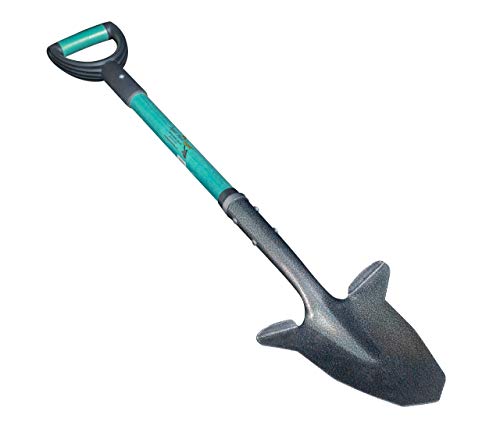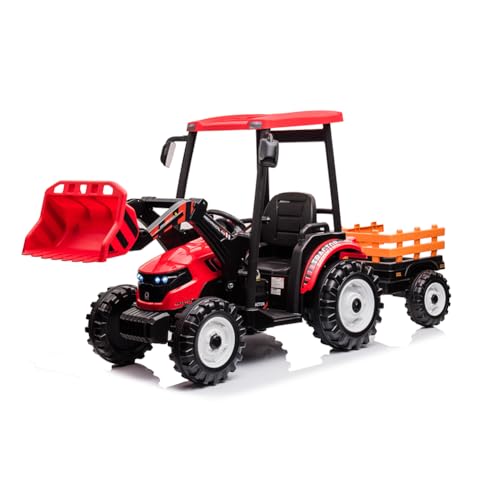
Tilling a garden is an essential step in preparing the soil for planting. While there are many tools available for this task, one of the most common and accessible is a simple shovel. Tilling with a shovel can be a physically demanding process, but it is also a gratifying way to connect with the earth and get a good workout at the same time.
Before you start tilling, it’s important to choose the right shovel for the job. Look for a shovel with a strong handle and a sharp blade. A long-handled shovel will provide more leverage, making it easier to dig into the soil. If possible, opt for a shovel with a slightly curved blade, as this will help break up the soil more efficiently.
When you’re ready to begin, start by marking out the area you want to till. Use stakes and string to create straight edges or curved lines, depending on the shape of your garden. This will help you stay organized and ensure that you till the entire area evenly.
Next, use your shovel to break up the soil. Start at one end of the marked area and plunge the blade of the shovel into the ground. Use your foot to push the shovel handle down, using your body weight to help drive the blade into the soil. As you lift the shovel, turn it slightly to break up any clumps of soil.
Preparing the Garden
Before you start tilling your garden with a shovel, there are a few steps you should take to ensure that your garden is ready for planting. Follow these steps to properly prepare your garden:
1. Clear the area
The first step in preparing your garden is to clear the area of any debris, rocks, or weeds. Use a rake or a garden hoe to remove any large rocks or debris, and pull out any weeds or grass using your hands or a weeding tool.
2. Test the soil
Testing the soil is an important step to determine if any amendments are needed. Use a soil testing kit or send a sample to a local agricultural extension for analysis. The results will tell you if you need to add any nutrients or adjust the pH level of your soil.
3. Add organic matter
Once you have tested the soil and determined the necessary amendments, it’s time to add organic matter. This can include compost, well-rotted manure, or leaf mold. Spread a layer of organic matter evenly over the garden area.
4. Till the soil
Now that you have cleared the area, tested the soil, and added organic matter, it’s time to start tilling the soil with your shovel. Begin at one end of the garden and work your way across, turning over the soil to a depth of 8-10 inches. Break up any clumps of soil and remove any large rocks or roots you encounter.
5. Level the soil
Once you have finished tilling the soil, use a rake or a garden hoe to level the surface. This will create a smooth and even planting bed for your seeds or seedlings.
By following these steps to prepare your garden, you will create an optimal environment for your plants to grow and thrive.
Choosing the Right Shovel
When it comes to tilling a garden with a shovel, choosing the right tool for the job is crucial. An appropriate shovel can make the process much easier and more efficient, saving you time and effort.
Here are some factors to consider when selecting a shovel for tilling:
| Type | There are various types of shovels available, each designed for specific tasks. When tilling a garden, a round-point shovel is a common choice. This type of shovel has a curved blade that is ideal for turning and loosening the soil. |
| Handle Length | The handle length is an important consideration, as it determines the leverage and comfort during use. If you are tall, you may prefer a shovel with a longer handle to avoid bending over too much. However, if you are shorter, a shorter handle may be more suitable. |
| Material | Shovels are typically made from either wood or steel. Wooden handles are lightweight and comfortable to grip, but they may break over time. Steel handles are more durable but can be heavier. Consider your personal preferences and the durability of the shovel when choosing the material. |
| Blade Size and Shape | The size and shape of the blade will determine the efficiency of the tilling process. A wider blade can cover more ground, speeding up the tilling process. Additionally, a sharp and well-maintained blade will make it easier to penetrate the soil. |
| Price | Lastly, consider your budget when selecting a shovel. While it’s important to invest in a high-quality tool, there are options available for every budget. Compare prices and features to find the best value for your money. |
By considering these factors and choosing the right shovel, you can make your gardening tasks more enjoyable and efficient. Happy tilling!
Steps to Till the Garden
Tilling a garden with a shovel can be a satisfying and effective way to prepare the soil for planting. Follow these simple steps to till your garden successfully:
| Step 1: | Choose the right time to till the garden. It is best to till when the soil is moist but not too wet. The ideal moisture level allows the soil to crumble easily without becoming too compact. |
| Step 2: | Start by removing any weeds or grass from the area you plan to till. Use a rake or a hoe to clear the surface before digging in. |
| Step 3: | Begin tilling at one end of the garden. Insert the shovel into the soil at a slight angle and use your foot to press it down firmly. Push the shovel forward to turn over the top layer of soil. |
| Step 4: | Continue turning over the soil, working your way across the garden in a straight line. Make sure to break up any large clumps of soil and remove any rocks or debris that you encounter. |
| Step 5: | Once you have tilled the entire garden, use a rake to smooth out the soil surface. This will help create an even and level bed for planting. |
| Step 6: | Consider adding compost or organic matter to enrich the soil before planting. This will provide essential nutrients for healthy plant growth. |
By following these steps, you can till your garden effectively using a shovel. Remember to take breaks as needed and enjoy the process of preparing your garden for a bountiful harvest.






